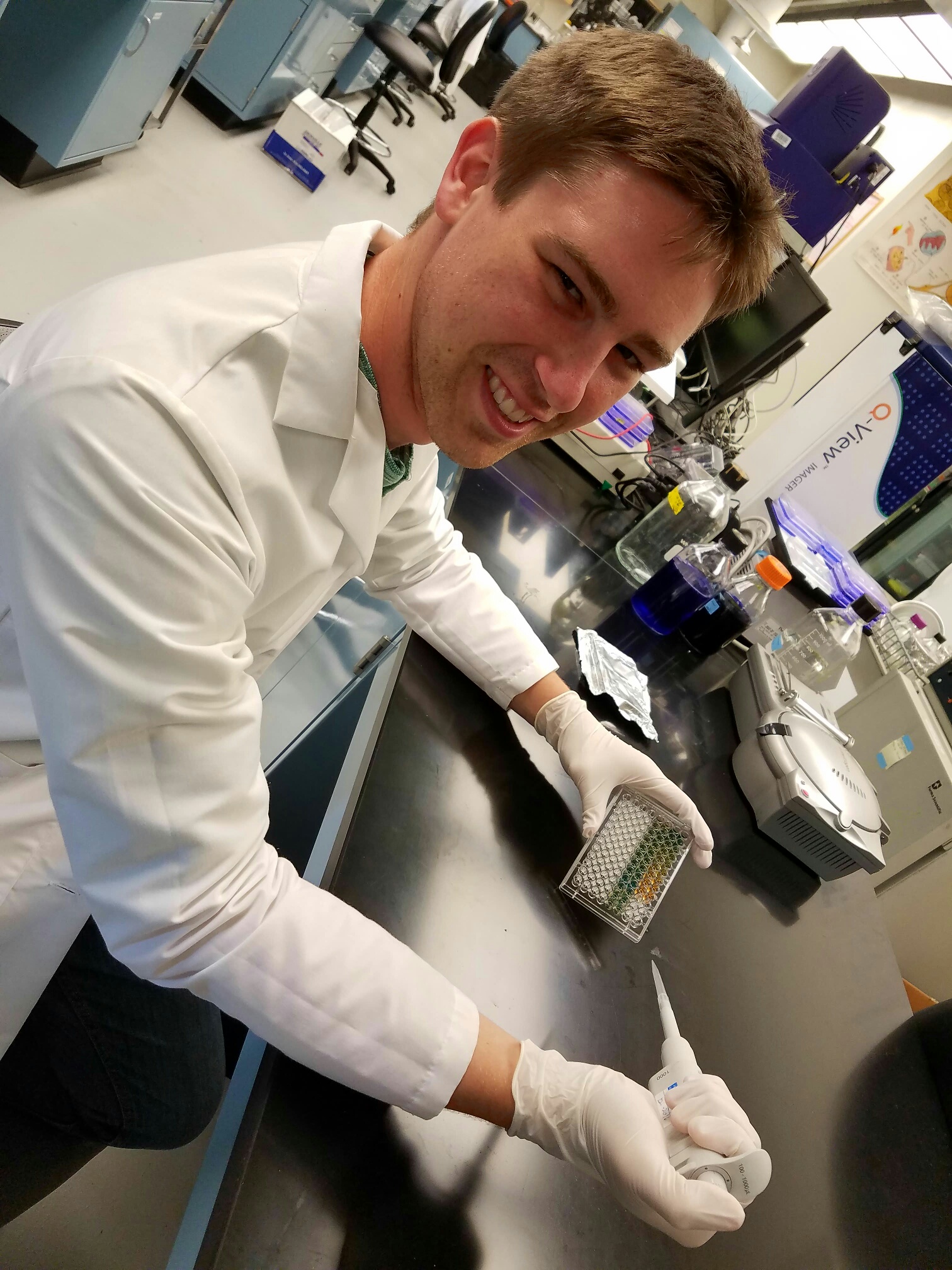Alex Ocken | Regenerative Research
 What type of research have you been working on?
What type of research have you been working on?
Over the summer of 2014, I had my first research and laboratory experience under the guidance of Dr. Panitch's graduate student, Nelda Vasquez. She and others in the laboratory inspired my future interest in research. I focused on creating different collagen type 1 and 2 hydrogel scaffolds. We introduced chondrocytes and aggrecan mimicking peptides to create a pro-regenerative environment for cartilage regrown.
In fall 2015, I began my research with Dr. Calve in her musculoskeletal extracellular matrix laboratory. Working with a peer, Andrew Witten, we optimized a bioorthogonal protocol to metabolically label the extracellular matrix of newly synthesized proteins in the mouse proteome. I gained more independence and worked through the experimental obstacles to developed and submit a manuscript to a research journal.
The opportunities that came through my undergraduate research continued to be fruitful as I was accepted to an NSF-REU summer program at the university of Kentucky for the summer of 2016. In Kentucky, I worked to implement the protocol we designed on the mammalian reformative spiny mouse model with the hope to identify pro-regenerative molecules within the extracellular matrix.
Why did you choose to work in these different labs?
I originally reached out to Dr. Panitch my freshman year because I was very interested in the field of regenerative medicine and her work. I also was interested in experiencing a wet laboratory environment and wanted more information regarding that potential career path before committing to it. After my experiences with Dr. Panitch, I reached out to Dr. Calve because her research was more interesting to me at the time and I agreed with her hypothesis regarding the importance of extracellular environment during development, regeneration, and healing. I was set in my plans to pursue graduate school and this pursuit was intending to find a laboratory environment and topic that aligned with my passion and goals. I found this in Dr. Calve's lab. The summer position in Kentucky served to fill my time over the summer as well as confirming my intentions to pursue a doctorate degree through the Weldon School of Biomedical Engineering under Dr. Calve's guidance. The experience gained in Dr. Seifert's Regenerative Biology laboratory gave me a new perspective towards my work.
What have been your favorite parts about working in these labs?
My favorite part of my experience in Dr. Panitch's laboratory was working with the graduate students. I saw their work ethic and experienced West Lafayette in a different light. My favorite experience in Dr. Calve's laboratory has been working through the challenges independently, as if I were a graduate student. Lastly, my favorite part of the NSF-REU program was working with the African Spiny mouse model, and learning the importance of a biological foundation and its implications for regenerative medicine.
How has this influenced your future academic or career plans?
All three research experiences have lead my developing career to the pursuit of a doctorate in Dr. Calve's laboratory. My previous co-op experience and intent to help people as a biomedical engineering helped guide my path to develop regenerative medicine and bring it to market.
What advice would you give to students who are interested in doing research with a professor?
Don't be afraid to ask. If your only concern for not pursuing a research experience is lack of confidence to approach a professor, just remember that they were probably in your shoes at one point. Talk with your teaching assistants (TAs) and other connections and let them help you connect with a professor you are interested in.
